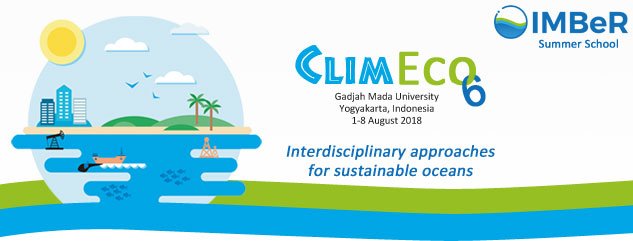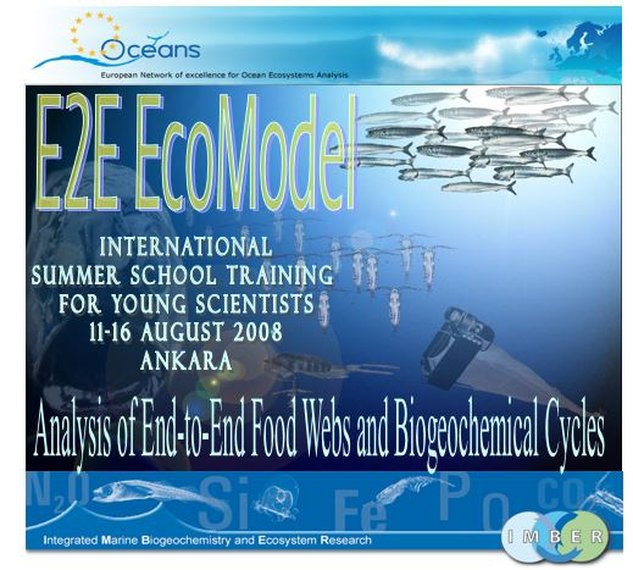-
IMBeR ClimEco7: Interdisciplinary ocean science for sustainable development
Time: 2021.08.09 - 2021.08.13Location: Vancouver, Canada
Previous ClimEco summer schools
-
IMBeR ClimEco6 Summer School - Interdisciplinary approaches for sustainable oceans
Time: 2018.08.01 - 2018.08.08Location: Gadjah Mada University, Yogyakarta, Indonesia
-
IMBeR ClimEco5 Summer School - Towards more resilient oceans: Predicting and projecting future changes in the ocean and their impacts on human societies
Time: 2016.08.10 - 2016.08.17Location: Praia Mar Hotel, Natal, Brazil
Our oceans provide a range of goods and services for human societies. However, marine ecosystems are changing at unprecedented rates, driven by a combination of climate pressures and direct anthropogenic impacts like fishing and coastal development. These impacts are modifying the productivity and biodiversity of marine ecosystems in ways that threaten their resilience and sustainability. The effects of both natural and anthropogenic pressures are expected to continue and probably intensify in many regions. Models of the socio-ecological system interactions, considering the combined effects of multiple drivers, will help us understand and project these potential impacts into the future. Because social-ecological system models and related indicators provide information necessary to anticipate potential future change in marine environments and to deal with this change to the best of our ability. To maintain marine ecosystem services these social-ecological models are critical for developing workable yet flexible management approaches and policy decisions.
-
ClimEco 4 - Delineating the Issues of Climate Change and Impacts to Marine Ecosystems: Bridging the Gap Between Research, Assessment, Policy and Management
Time: 2014.08.04 - 2014.08.09Location: Shanghai, China
IMBER focuses on the interactions and linkages between biogeochemical cycles and food webs, including humans, with the aim of improving the predictive capacity for marine ecosystems increasingly affected by global change. As the marine environment is very complex, particularly in the context of global change, indicators are often used to provide a practical and economical way to track the state of ecosystems. This fourth IMBER summer school, ClimEco4, continued IMBER’s focus on fostering research at the interface of natural and human systems. It was structured around lectures and activities that focus on indices of climate change, climate impacts, and ecosystem services, and how these are linked to indices for socio-economic and policy information in relation to climate-ecosystem interactions.
-
ClimEco 3 - A View Towards Integrated Earth System Models. Human-nature Interactions in the Marine World
Time: 2012.08.23 - 2012.07.28Location: Ankara, Turkey
IMBER focuses on the interactions and linkages between biogeochemical cycles and food webs with a view towards improving predictive capability for marine ecosystems. It is now apparent that the human dimension is an important component of marine ecosystems. Inclusion of the human aspects into marine ecosystem research is only beginning and considerable development is still required to allow meaningful interfacing of food web, biogeochemical and socio-economic systems. The inclusion of human impacts in Earth System models will allow the development of more accurate scenarios under future climate change.
-
ClimEco 2 Summer School - Oceans, Marine Ecosystems, and Society facing Climate Change: A multidisciplinary approach
Time: 2010.08.23 - 2010.08.27Location: Brest, FranceClimate variability from both natural and anthropogenic sources influences ocean circulation, biogeochemical cycles and the functioning of marine ecosystems.
-
E2E EcoModel
Time: 2008.08.11 - 2008.08.16Location: Ankara, Turkey


